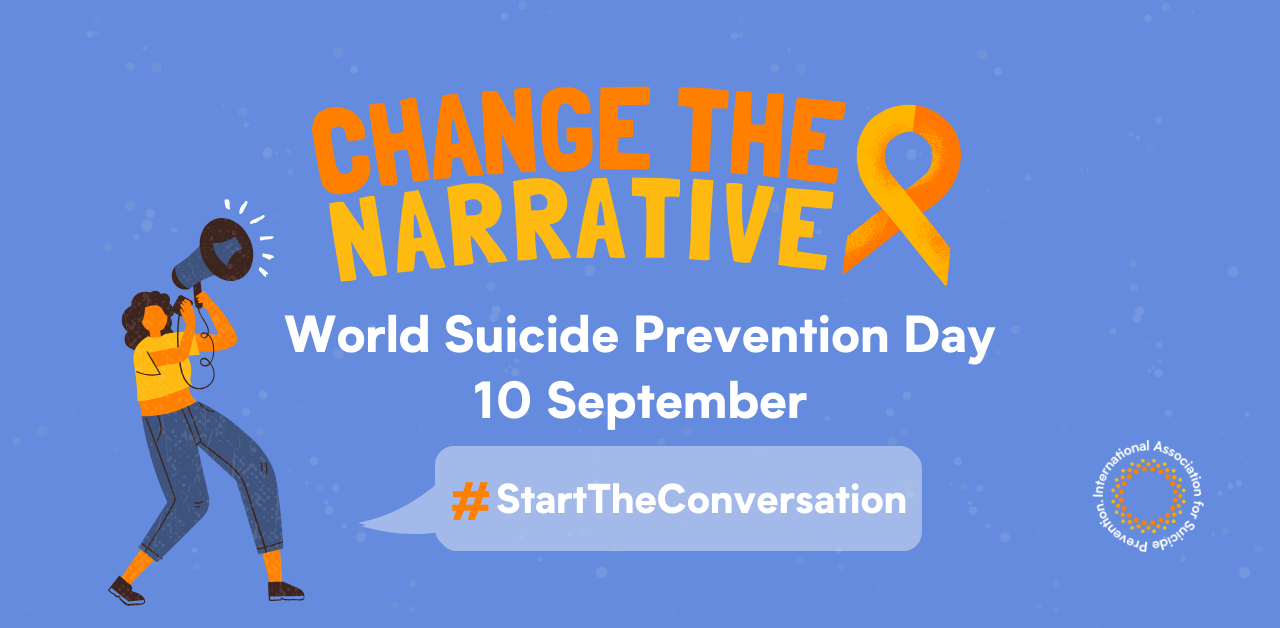World Suicide Prevention Day: Your Guide to Being There
September 10th marks World Suicide Prevention Day, a day dedicated to raising awareness and taking action to prevent suicides. Every year, people across the globe come together to spread hope and support those who may be struggling. Recognising warning signs and offering the right support can make a crucial difference. This guide will equip you with the knowledge and tools to help someone in need, understand when to seek immediate help, and care for yourself. Let’s break the stigma and save lives together.
How to Recognise Warning Signs
Recognising the warning signs of suicide is the first step toward prevention. People who are suicidal may not always reach out for help, so it’s essential to be vigilant. Here are some common signs to look out for:
1. Verbal Cues: Statements like “I can’t go on,” “I’m a burden,” or “I wish I were dead” are direct cries for help. Even if said in passing or as a joke, they should be taken seriously.
2. Behavioural Changes: Sudden withdrawal from social activities, giving away prized possessions, or engaging in risky behaviour can indicate a person is struggling. Look for drastic shifts in behaviour, especially if these changes are out of character.
3. Mood Swings: Extreme mood swings, persistent sadness, hopelessness, or expressions of severe guilt or shame can be signs of suicidal thoughts. If someone suddenly feels calm or happy after a period of depression, this can also be a red flag, as it may indicate they have decided to end their life.
4. Lack of Interest: A loss of interest in once enjoyable activities, neglecting personal appearance, or poor performance at work or school can all be indicators that someone is struggling.
5. Physical Symptoms: While less obvious, changes in sleep patterns, appetite, or energy levels can be physical manifestations of mental health struggles.

How to Support Someone Who May Be Suicidal
Offering support to someone who may be suicidal can be challenging but incredibly important. Here are some ways to provide meaningful support:
1. Listen Without Judgment: Allow the person to express their feelings without interruption. Showing that you are listening and taking them seriously can make a huge difference.
2. Encourage Them to Talk: Gently encourage the person to share their thoughts and feelings. Sometimes just talking about what’s troubling them can reduce the feeling of isolation.
3. Offer Reassurance: Let them know that they are not alone and that help is available. Validate their feelings and reassure them that they can get through this.
4. Stay Connected: Regularly check in with them, even if it’s just a text or a quick call. Knowing that someone cares can provide a sense of comfort and stability.
5. Encourage Professional Help: Gently suggest that they seek professional help from a counsellor, therapist, or doctor. Offer to help them find resources or accompany them to appointments.
How to Know When to Seek Immediate Help
There are times when immediate intervention is necessary. Knowing when to act quickly can be life-saving:
1. Direct Threats: If the person has made a direct threat to harm themselves or others, it’s crucial to take this seriously and seek immediate help.
2. Access to Means: If they have access to lethal means (e.g., firearms, medication, sharp objects) and have expressed the desire to use them, remove these items and seek help immediately.
3. Behaviours That Signal Imminent Risk: Actions such as writing a will, saying goodbye to loved ones, or looking for methods to end their life are urgent warning signs.
4. Refusal of Help: If the person refuses help but is clearly in distress, it’s important to involve professionals. Contact local emergency services or a suicide prevention hotline.

How to Start the Conversation
Starting a conversation about suicide can be intimidating, but it’s a vital step. Here’s how to approach it:
1. Choose the Right Setting: Find a quiet, private place where you can talk without interruptions. Make sure both of you are comfortable.
2. Be Direct but Compassionate: Use straightforward language, such as, “I’m sorry that you are going through a tough time and I just want to make sure that you are safe. Are you having any dark thoughts?” Being direct shows that you care and are not afraid to talk about difficult topics.
3. Express Concern: Let them know what specific behaviours or comments have made you concerned. For example, “I noticed you haven’t been yourself lately, and I’m worried about you.”
4. Be Patient: The person may not open up immediately. Give them time and let them know you’re available whenever they’re ready to talk.
Self-Care for Supporters
Helping someone who is suicidal can be emotionally challenging and can impact your own mental health. It’s important to practice self-care to maintain your well-being:
1. Set Boundaries: It’s okay to set limits on how much you can help. Make sure you’re not neglecting your own needs while supporting others.
2. Seek Support: Don’t hesitate to reach out to friends, family, or professionals to talk about your feelings. You don’t have to go through this alone.
3. Take Time for Yourself: Engage in activities that help you relax and recharge. This could be anything from reading a book to taking a walk or listening to music.
4. Educate Yourself: Understanding more about mental health and suicide can help you feel more equipped to provide support and also protect your well-being.
5. Acknowledge Your Emotions: It’s natural to feel overwhelmed, sad, or even frustrated. Allow yourself to feel these emotions and seek help if they become too much to handle.
Together, We Can Make a Difference: Supporting Those in Need
World Suicide Prevention Day is a reminder that we all have a role to play in supporting those who are struggling. By recognising warning signs, knowing how to offer support, and caring for ourselves, we can create a safer, more compassionate world.
If you or someone you know is in crisis, don’t hesitate to seek professional help. Remember, a single conversation can be the first step toward saving a life.
Let’s join hands and work together to inspire hope and prevent suicide.









